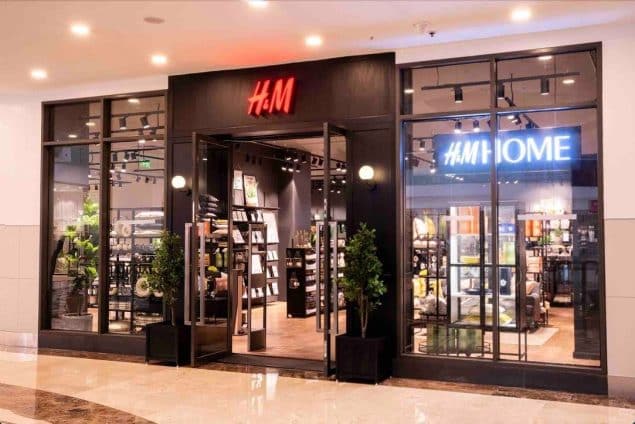Home » US business news • World Business & Employment News » H&M hit with another greenwashing lawsuit
H&M hit with another greenwashing lawsuit
https://www.whatjobs.com/news/world-news/hm-hit-with-another-greenwashing-lawsuit

By Nagasunder in US business news, posted November 16, 2022

H&M is facing another class action lawsuit over allegations that its Conscious Choice collection is greenwashing.
A claim filed in a federal court in Missouri accuses the retailer of "misleadingly, illegally, and deceptively" labeling its products as "green."
It claims this was an attempt to capitalize on consumer 'green' trends, with H&M customers led to believe that purchasing Conscious Choice products is an environmentally responsible choice.
READ MORE: $67 MILLION FOR LOST PANTS AND A TERRIFYING COMMERCIAL: MORE OF THE MOST RIDICULOUS LAWSUITS OF ALL TIME
The plaintiffs contend that consumers were "duped into paying a premium for green products that weren't green at all."
“Basing sustainability strategies on the idea that consumers can continue to consume disposable plastic goods (because they can be recycled into more products) is highly problematic.
“This method of ‘green’ marketing does not address the fundamental issue of perpetuating disposable solutions and over-consumption of natural resources.
READ MORE: LAWSUIT ACCUSES AMAZON AND APPLE OF ILLEGAL MARKETPLACE MONOPOLY
“Indeed, these strategies encourage consumers to buy more clothes or throw away garments sooner, in the belief they can be recycled in some magic machine.”
According to the filing, numerous companies "greenwash" their products by falsely stating that their clothing is created from materials that are more environmentally friendly and sustainable in response to the growing market demand for such fashion.
Green hangtags are a labeling strategy used by H&M to identify and sell its "Conscious Choice" products, which implies that clothing is either more sustainable than other products..
Need Career Advice? Get employment skills advice at all levels of your career
Despite being primarily made of polyester or recycled plastics, the plaintiffs contend that this misrepresents the products as having no harmful environmental effects.
In addition, H&M charges a premium price for its Conscious Choice products, which The Fashion Law says is significant to the filing, “as it is at the heart of the plaintiff's ability to show that they have suffered the necessary injury to have the standing to sue.”
The platform committed to exposing corporate wrongdoing, ClassAction.org, says “The United States Federal Trade Commission (FTC) Green Guides, a set of principles designed to prevent companies from greenwashing their products, states that “an environmental marketing claim should not overstate, directly or by implication, an environmental attribute or benefit.
“Marketers should not state or imply environmental benefits if the benefits are negligible,” the filing states.
Source: Retail Gazette
Follow us on YouTube, Twitter, LinkedIn, and Facebook.














